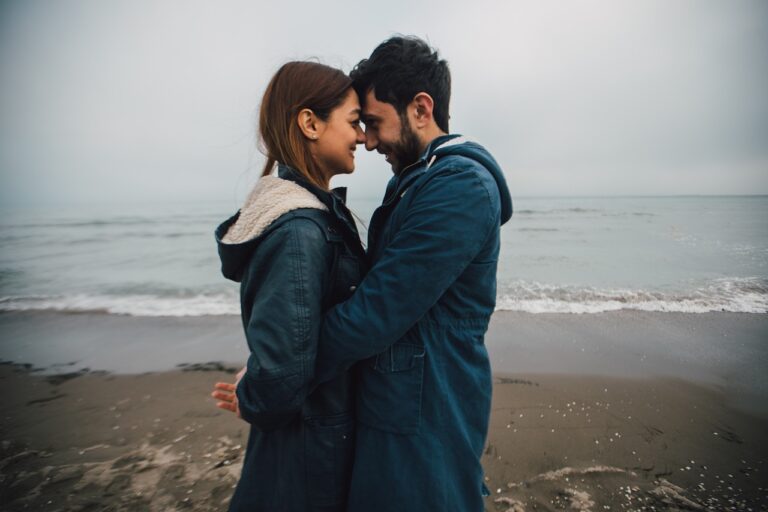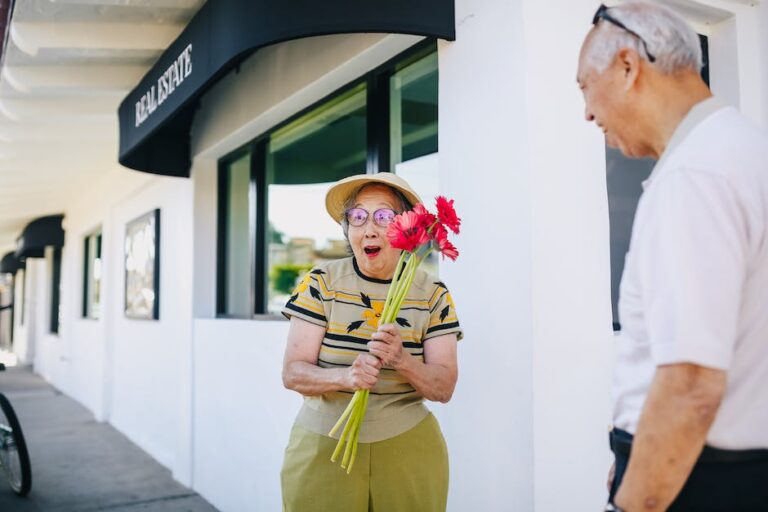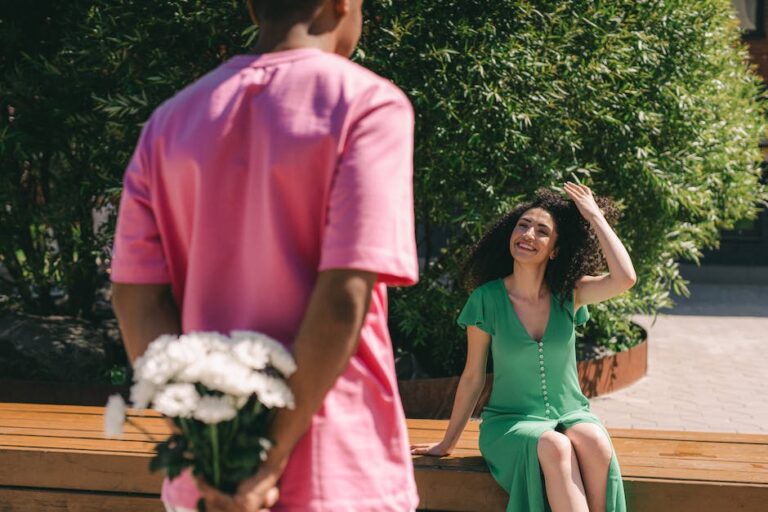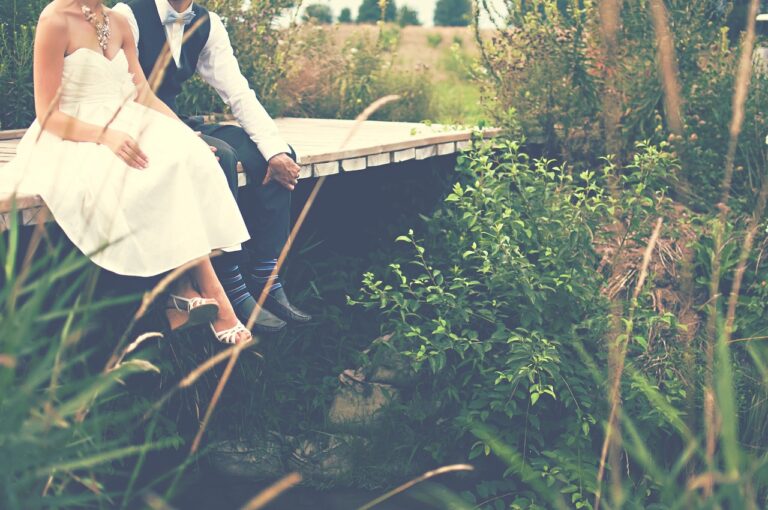Celebrating Jewish Holidays as a Couple: Dating and Beyond
Meeting the Jewish Holidays: A Guide for Couples Exploring Traditions Together
It’s no surprise that couples with different backgrounds often find themselves navigating the complexities of merging traditions. For those exploring Jewish holidays, this guide aims to provide a helpful road map to celebrate and embrace these meaningful occasions together. Whether you are a non-Jewish partner seeking to learn more or an interfaith couple trying to find common ground, this guide offers insights, tips, and suggestions to create a shared experience that honors both partners’ backgrounds. Understanding the rituals, symbolism, and significance behind each holiday can foster a deeper connection, enrich your relationship, and cultivate a sense of unity as you embark on this journey of exploration and celebration together.
As couples embark on this journey together, it’s important to approach the exploration of Jewish holidays with an open mind and a genuine curiosity. Each holiday holds its own traditions and customs, and it’s essential to approach them with respect and appreciation for their significance. From the powerful symbolism of Passover’s Seder meal to the transformative introspection of Rosh Hashanah and Yom Kippur, each holiday offers a unique opportunity for personal growth and connection as a couple. Embracing these traditions, even in a modified or adapted way, can help merge your individual identities into a shared sense of meaning and connection. The key is to find ways to incorporate Jewish customs into your couple routine that feel authentic and comfortable for both partners, fostering a sense of unity and understanding that celebrates your unique journey together.
Embracing Jewish Culture: How Celebrating Holidays Can Strengthen Your Relationship
Whether you and your partner come from different religious backgrounds or share the same Jewish heritage, embracing Jewish culture through holiday celebrations can greatly strengthen your relationship. The Jewish holidays are not just about rituals and traditions; they offer an opportunity for couples to bond, grow, and create lasting memories together.
When you celebrate holidays like Passover, Rosh Hashanah, or Hanukkah, you are not only connecting with your own roots but also creating a sense of belonging for both partners. It allows you to honor the rich history and values of Judaism while building a shared experience as a couple. From lighting the menorah during Hanukkah to participating in a traditional Seder during Passover, these celebrations can bring you closer as you learn about and appreciate each other’s backgrounds. By immersing yourselves in Jewish customs, you can deepen your understanding of each other and foster a sense of unity and togetherness.
From Dating to Shabbat Dinners: Incorporating Jewish Customs into Your Couple Routine
Dating can be an exciting and exploratory time for couples. As you get to know each other better, it’s natural to start incorporating various aspects of your lives into your routines. One beautiful way to deepen a relationship is by incorporating Jewish customs, such as celebrating Shabbat dinners, into your couple routine.
The tradition of Shabbat, which begins at sundown on Friday and concludes at nightfall on Saturday, can be a meaningful and enriching experience for couples. It offers a chance to disconnect from the hectic pace of daily life and connect on a deeper level with your partner and with Jewish traditions. Lighting the Shabbat candles together, reciting the blessings over the wine and challah, and enjoying a festive meal can create a sense of sacredness and peace in your home. It’s a time to slow down, reflect, and appreciate the blessings in your lives. Incorporating Shabbat dinners into your couple routine can bring a sense of grounding and spirituality to your relationship, helping you foster a deeper connection with each other and with the Jewish faith.
Exploring Passover: Matzah, Seder, and the Symbolism of Freedom
Passover, known as Pesach in Hebrew, is an important holiday in the Jewish calendar that commemorates the liberation of the Israelites from slavery in ancient Egypt. It is a time when Jewish families gather to reflect on the past and celebrate their freedom. Central to the Passover celebration is the Seder, a ceremonial dinner that includes a specific order of rituals, readings, and symbolic foods. The Seder is a unique and meaningful experience for couples exploring Jewish traditions together, as it allows them to connect with their Jewish heritage and deepen their understanding of the symbolism behind the holiday.
One of the most distinctive elements of the Passover Seder is the presence of matzah, unleavened bread that represents the haste with which the Israelites left Egypt. Matzah is a flat, crisp bread made without yeast, and its simplicity is a powerful reminder of the hardships faced by the Israelites during their journey to freedom. During the Seder, there are specific moments when participants eat the matzah, recognizing its important role in the story of Passover. This tradition encourages couples to reflect on the themes of liberation, humility, and gratitude, fostering a sense of connection not only to the past but also to their own personal journeys.
Rosh Hashanah and Yom Kippur: Reflection, Renewal, and the Power of Forgiveness
Rosh Hashanah and Yom Kippur are two of the most significant Jewish holidays that focus on reflection, renewal, and the power of forgiveness. Rosh Hashanah marks the Jewish New Year and is a time for introspection and contemplation. As couples exploring Jewish traditions together, incorporating these holidays into your relationship can bring about a deeper connection and understanding.
During Rosh Hashanah, it is customary to engage in self-reflection and evaluate one’s actions over the past year. This offers an opportunity for couples to come together and reflect on their own personal growth as well as the growth of their relationship. It is a time to express gratitude for the blessings in life and acknowledge areas for improvement.
Yom Kippur, often referred to as the Day of Atonement, follows Rosh Hashanah and is a solemn day of fasting and repentance. It is a time to seek forgiveness from others and to forgive oneself. As a couple, it can be a profound experience to engage in this reflection and forgiveness process together, as it allows for healing and growth within the relationship. It is a time to let go of past hurts and start fresh with renewed intentions and commitments.
• Rosh Hashanah and Yom Kippur are significant Jewish holidays focused on reflection, renewal, and forgiveness.
• Rosh Hashanah is the Jewish New Year and a time for introspection and contemplation.
• Couples can incorporate these holidays into their relationship to deepen their connection and understanding.
• During Rosh Hashanah, it’s customary to reflect on personal growth and express gratitude while acknowledging areas for improvement.
• Yom Kippur is a solemn day of fasting and repentance, where seeking forgiveness from others and oneself is emphasized.
• Engaging in this reflection and forgiveness process together as a couple can lead to healing and growth within the relationship.
• It provides an opportunity to let go of past hurts, start fresh with renewed intentions, and make commitments.
Hanukkah: Lighting up the Darkness and Creating New Traditions as a Couple
Hanukkah, also known as the Festival of Lights, is a special time for Jewish couples to come together and create new traditions that celebrate both their love for each other and their Jewish heritage. This eight-day holiday, which usually falls in December, commemorates the miraculous story of the Maccabees and the rededication of the Second Temple in Jerusalem. As a couple, you can embrace this festival as an opportunity to light up the darkness in your lives and deepen your connection by incorporating meaningful customs into your celebrations.
One of the most important traditions during Hanukkah is the lighting of the menorah. Each night, a new candle is added to the menorah until all eight candles are glowing in unison. This beautiful ritual symbolizes the miracle of the oil that burned for eight days instead of just one, and it serves as a reminder that even in the darkest of times, there is always hope and light. As a couple, you can make this tradition even more special by choosing a unique menorah that reflects your shared interests or by making your own personalized one together. Lighting the candles together can become a cherished moment for you both, as you take a moment to reflect on your blessings and the love that lights up your lives.
Purim: A Festive Celebration of Joy, Costumes, and Giving Back
Purim, one of the most festive holidays in the Jewish calendar, is a time of immense joy and celebration. It is a day when people of all ages come together to commemorate the events that took place in ancient Persia, as portrayed in the Book of Esther. The story revolves around Queen Esther, who bravely intervened to save the Jewish people from destruction. On Purim, the vibrant energy can be felt as communities gather to retell the story through lively readings, often adorned with comical plays and skits. Amidst the merriment, it is customary for everyone to exchange Mishloach Manot, delicious packages of festive treats and gifts, as an act of unity and giving back to one another.
An iconic aspect of Purim is the tradition of wearing costumes. From superheroes to historical figures, people get creative and embrace the opportunity to dress up as characters from various themes. The costumes reflect the joyous spirit of the holiday, encouraging people to let loose and have a fun-filled time. Whether it’s hilarious group costumes or elaborate solo getups, the streets come alive with an array of colors and characters. Beyond the surface, the act of donning costumes also serves as a reminder that things are not always as they seem, as highlighted in the story of Esther. It is a way of expressing the joy and liberation that came from the Jewish people’s victory over their adversaries, often symbolizing the triumph of good over evil.
Sukkot: Building a Sukkah and Finding Meaning in Temporary Structures
Sukkot is a joyous Jewish holiday that celebrates the harvest season and commemorates the time when the Israelites wandered in the desert after escaping slavery in Egypt. One of the central customs of Sukkot is the building of a sukkah, a temporary structure that represents the temporary dwellings the Israelites lived in during their journey. Building a sukkah can be a fun and meaningful activity for couples exploring Jewish traditions together.
The sukkah is typically constructed using a variety of materials such as wood, bamboo, or even PVC pipes. It is covered with branches and leaves, allowing for some natural light to filter through. Inside the sukkah, it is customary to decorate with fruits, vegetables, and other harvest-related items. Some couples may enjoy the hands-on experience of building the sukkah themselves, while others may opt for purchasing a pre-made sukkah kit. Regardless of how you build it, the act of constructing a sukkah can foster a sense of togetherness and teamwork in a relationship.
Simchat Torah: Dancing with the Torah and Embracing the Joy of Learning
Simchat Torah is a festival that holds immense significance for the Jewish community. It is a time of celebration and immense joy, where individuals come together to dance with the Torah and embrace the joy of learning. The holiday marks the completion of the annual Torah reading cycle and the beginning of a new one.
During Simchat Torah, synagogues around the world resound with lively music and enthusiastic dancing. The Torah scrolls are taken out of the ark and carried in a procession around the sanctuary, while people of all ages join in the dancing, often with children hoisted high on their shoulders.


Honoring Jewish Holidays as an Interfaith Couple: Navigating Differences with Respect and Love
When individuals from different faith backgrounds come together as a couple, they often find themselves navigating the complexities of honoring each other’s traditions and holidays. This is especially true for interfaith couples looking to embrace Jewish holidays while respecting their partner’s beliefs. While it may seem daunting at first, approaching these celebrations with an open mind and a willingness to learn can lead to a beautiful exploration of shared values and an even stronger bond.
One of the keys to successfully navigating Jewish holidays as an interfaith couple is communication. Open and honest dialogue about each partner’s beliefs, expectations, and desires is essential before embarking on this journey together. Take the time to discuss the significance of the upcoming holiday, its traditions, and any personal or familial connections it holds for your partner. By actively listening to each other’s perspectives and experiences, you can create a space of understanding and mutual respect. This allows you to approach the celebration of Jewish holidays with a shared sense of purpose and appreciation for the traditions involved.
How can interfaith couples navigate differences when it comes to honoring Jewish holidays?
Interfaith couples can navigate differences by approaching the holidays with respect and love. It’s important to communicate openly, understand each other’s traditions, and find ways to incorporate both backgrounds into the celebrations.
Is it necessary for both partners to participate in all Jewish holiday traditions?
It is not necessary for both partners to participate in all Jewish holiday traditions. Each partner can choose which traditions they feel comfortable participating in, while still respecting and supporting their partner’s traditions.
How can interfaith couples incorporate Jewish customs into their routine?
Interfaith couples can incorporate Jewish customs into their routine by starting small and gradually adding new traditions. This can include lighting Shabbat candles, attending a Passover Seder, or celebrating Hanukkah by lighting the menorah together.
What is the significance of Passover in the Jewish faith?
Passover is a significant holiday in the Jewish faith as it commemorates the liberation of the Israelites from slavery in Egypt.
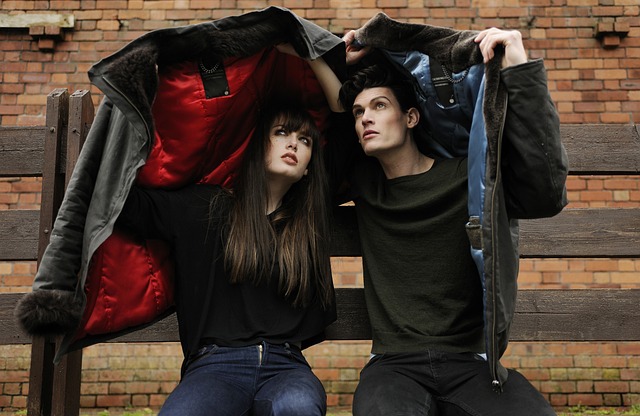
What are some common traditions associated with Rosh Hashanah and Yom Kippur?
Rosh Hashanah is the Jewish New Year, and it is a time of reflection and renewal. Yom Kippur, also known as the Day of Atonement, is a day of fasting and repentance. Both holidays emphasize self-reflection, forgiveness, and starting the year anew.
How can interfaith couples create new traditions during Hanukkah?
Interfaith couples can create new traditions during Hanukkah by incorporating elements from both partners’ backgrounds. They can light the menorah together, exchange gifts, and enjoy traditional Hanukkah foods while also incorporating customs from the other partner’s religion or cultural traditions.
What is the significance of Purim in the Jewish faith?
Purim is a festive holiday that commemorates the salvation of the Jewish people from a plot to destroy them in ancient Persia. It is a time of joy, costume parties, giving back to the community, and reading the Book of Esther.
What does celebrating Sukkot involve?
Celebrating Sukkot involves building a sukkah, a temporary outdoor structure, and spending time in it. It is a harvest festival that celebrates the temporary dwellings the Israelites lived in during their journey through the desert. It is a time of gratitude, community, and connecting with nature.
What is the significance of Simchat Torah in the Jewish faith?
Simchat Torah is a holiday that celebrates the completion of the annual cycle of reading the Torah. It is a joyous occasion where the Torah scrolls are danced with, and the Jewish community embraces the joy of learning and the wisdom of the Torah.
How can interfaith couples honor Jewish holidays while respecting each other’s beliefs?
Interfaith couples can honor Jewish holidays while respecting each other’s beliefs by maintaining open communication, being understanding and supportive, and finding a balance that works for both partners. It is important to approach differences with respect and love, and to find ways to incorporate both backgrounds into the celebrations.

